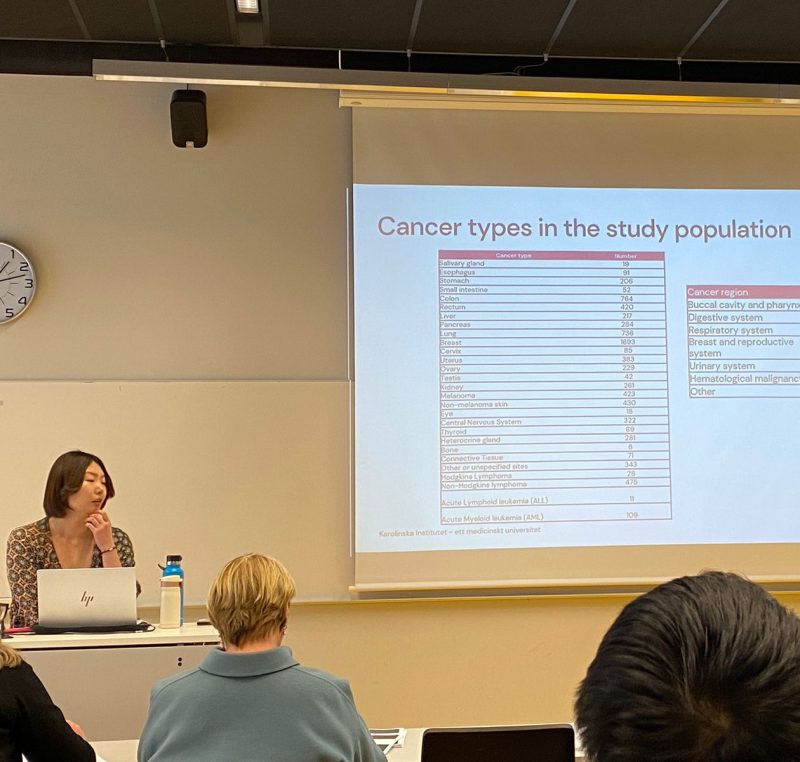
Sustainable advice for your thesis project term
I will be sharing some small, practice advice that may be applicable for the greater Global masters and bachelors student population at KI. As second year KI students begin their first last day of school this year, the thesis project may be on their minds. Besides the technical aspects of the thesis, here are some things to consider that may make the semester go smoothly!
Make plans with your friends regularly
You will probably hear this often from different people. With that being said, I cannot emphasize this enough. I think it makes full sense that you need to temporarily cut off your surroundings. This might especially be true in the beginning of this process when much of the data and methods are unfamiliar to you. With that being said, I’ve found it to be quite unsustainable to do that forever.
In my experience, I found myself dodging small coffee breaks at the start of the thesis project because I felt so overwhelmed with my project. I always felt a bit behind and therefore felt the need to isolate myself to catch up. Looking back, it was a short but lonely time for me. As soon as I decided to say yes to coffee breaks or even initiate some meetings, my days didn’t feel so monotone.
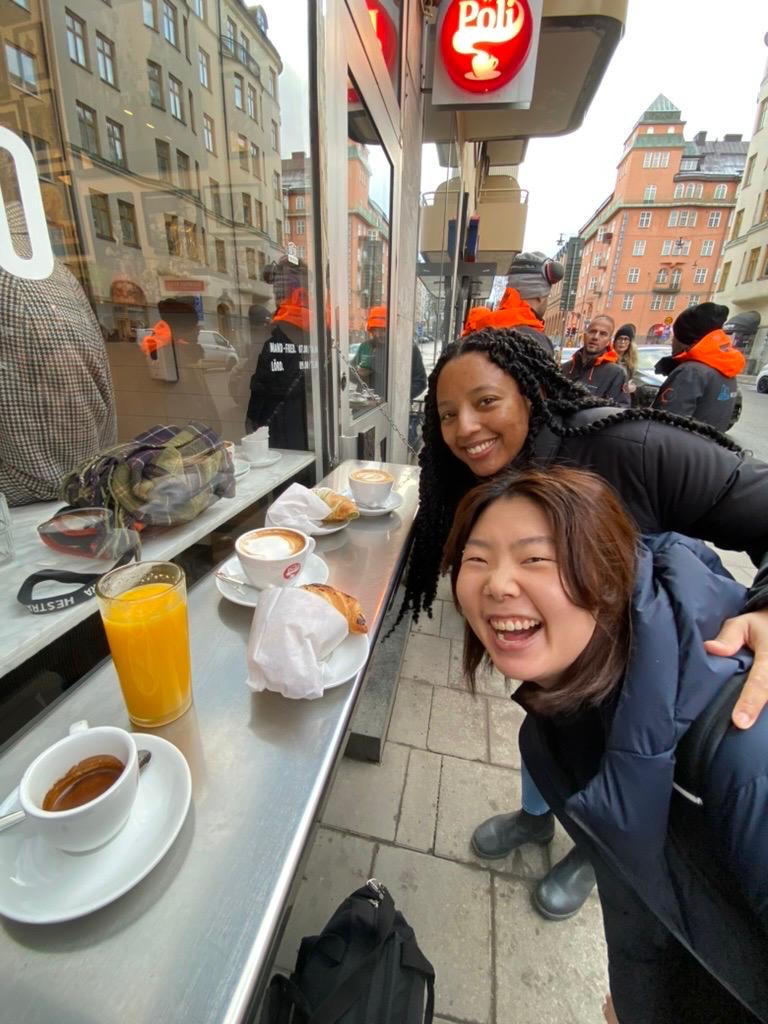
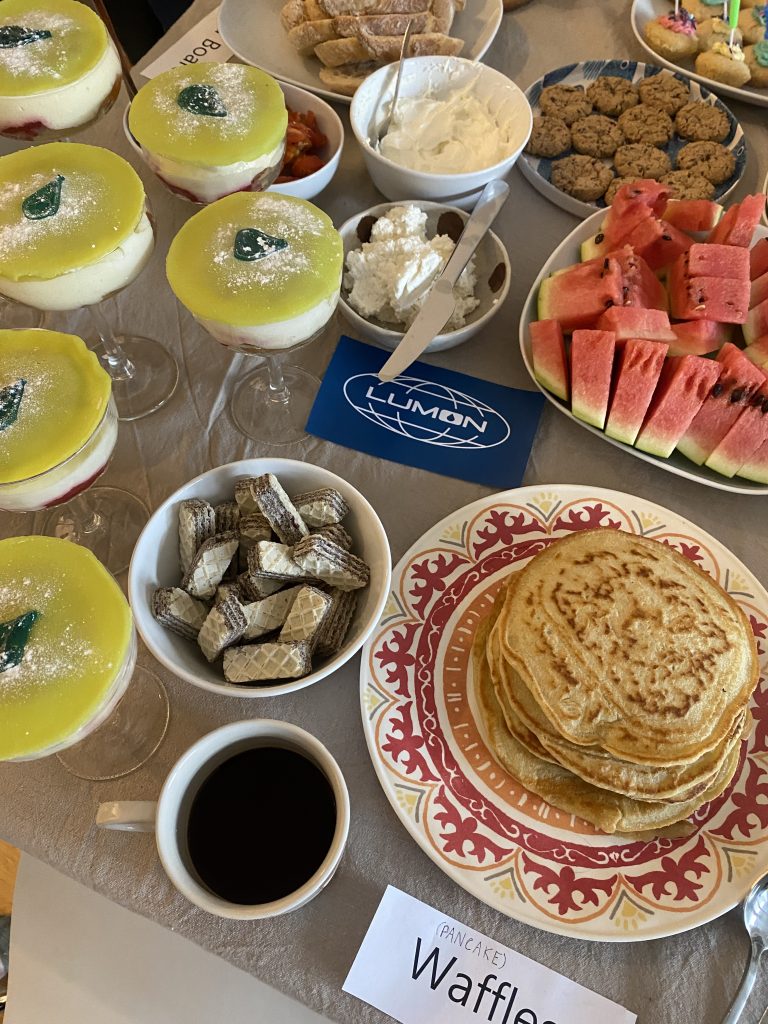
So, try to meet at least one friend or colleague per day for maybe a minimum of 15 minutes! It can be over lunch, at the office, at a campus café, or over a walk. You can also try to schedule more things during the weekend once you’ve got your weekday schedule down. Some of my lovely classmates also arranged bi-weekly AW’s (afterworks) on Thursday’s so that we could routinely meet up! During the AW’s, I also found comfort in my peers and I sharing a common experiences. Making hanging out a habit, but not a chore, and finding the amount of consistency that works for you is ideal.
Set weekly goals and achievables
Producing a thesis entails applying everything you have learned at KI and some more, taking a lot of initiative on your own. It was therefore truly dauting to me at first. I felt like each section of the thesis asked a lot from us in terms of workload and quality.
But fear not! When breaking them into smaller, more malleable pieces, a lot of big tasks can be accomplished.
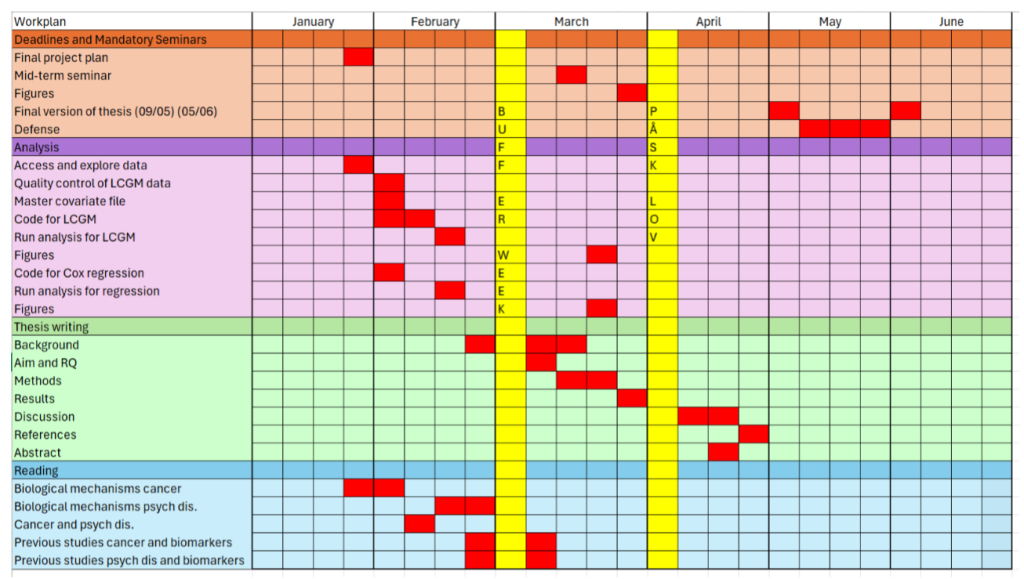
Prior to starting the thesis projects, we started off with sending in a proposed GANTT chart with deadline dates for each part of the thesis. This included writing the code, conducting the analysis, writing the results, introduction, and so forth. Once those “arbitrary” days are set, I think it becomes easier to set weekly, daily and hourly goals. I’ve personally benefitted from setting and following these small-scaled goals on a daily basis. Sometimes you don’t account for smaller yet time-consuming steps throughout the writing process, so keeping track of them saved me some time! It’s also really satisfying to check things off as you go about your day.
Ask (alot) of questions
To be honest, I am god awful at listening to people talk for extended periods of times. The amount of times I have zoned out during interesting (and important) lectures are embarrassingly high. Unfortunately, this did not go away during the thesis process. Sometimes I would zone out during Zoom calls with my supervisor. Initially, I opted not to ask them to repeat themselves, but only made me confused later. I then decided to either politely ask for a rephrase or clarification on Zoom or during follow-up emails. This was more effective and even led to more nuanced discussions about the topic of interest.
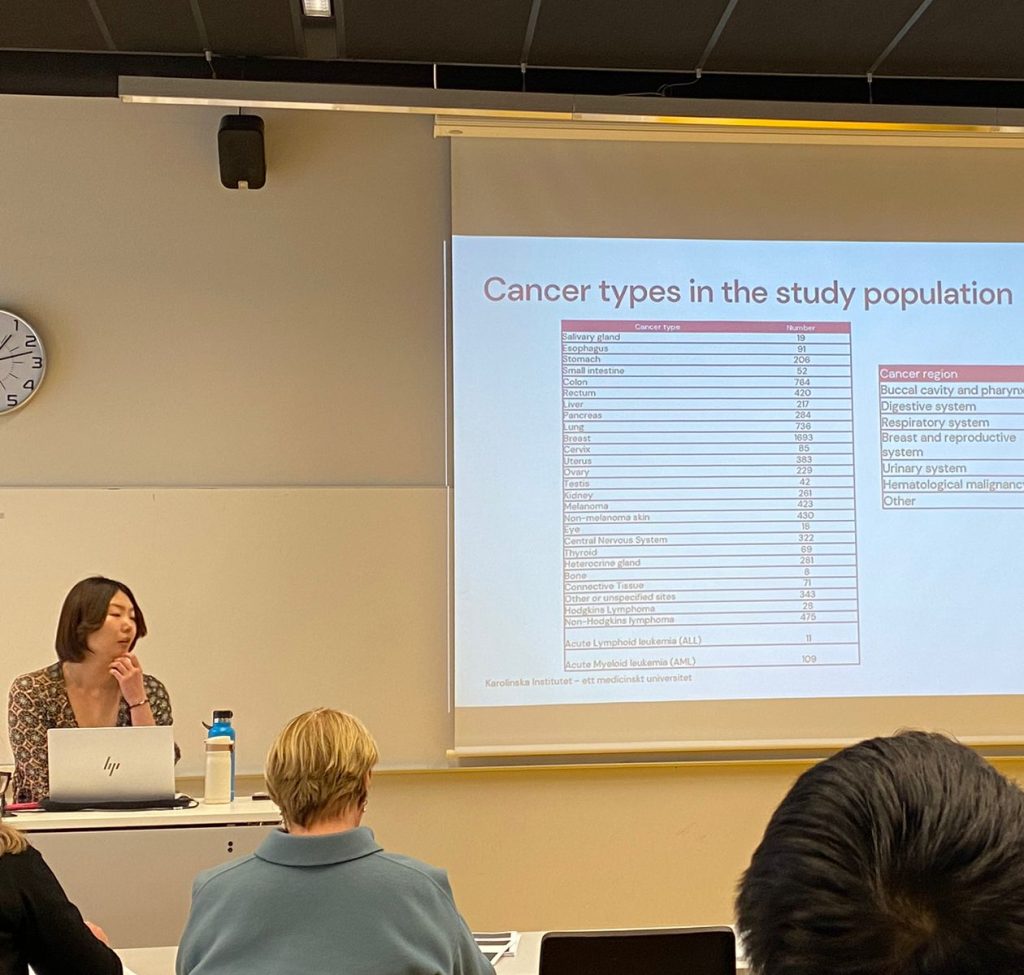
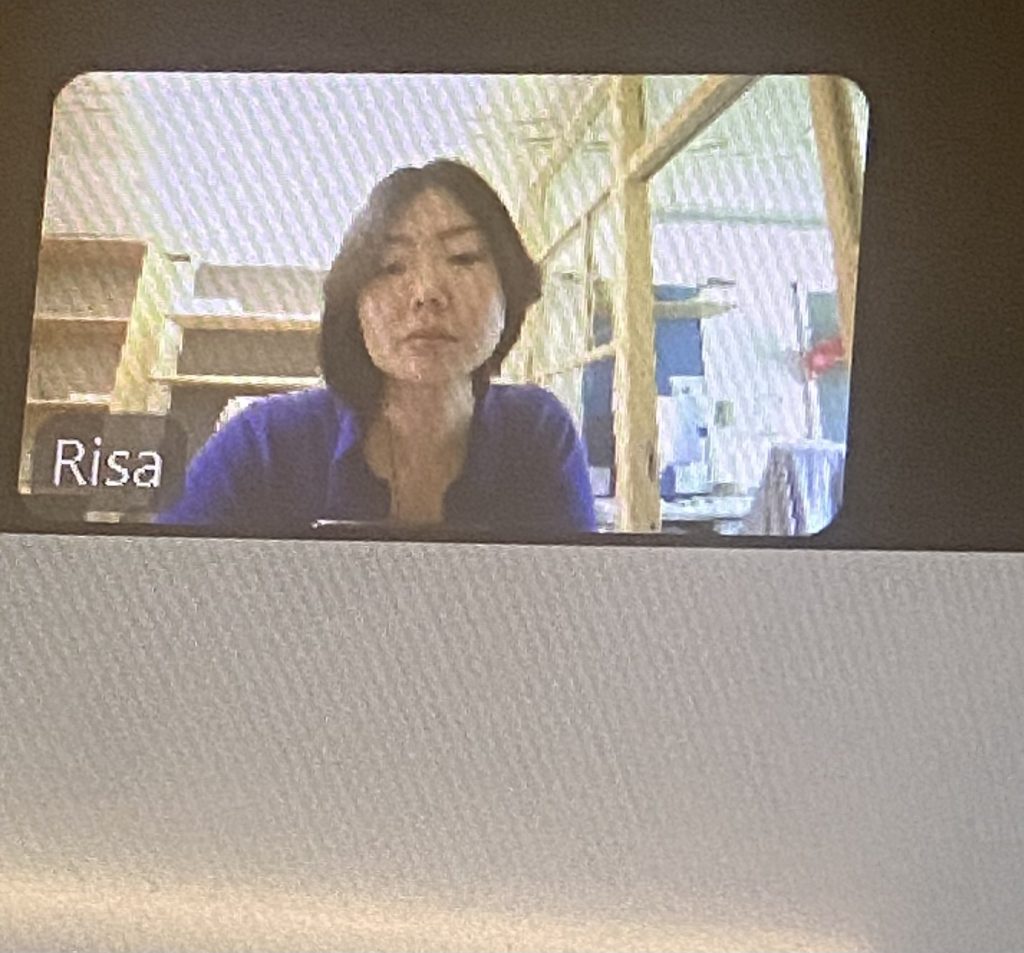
I think no question is dumb, but some are formulated in a way that aren’t so understandable. This is why I also think this is a good time to practice asking clear, concise questions. To me, this ability is extremely useful in professional settings. It is also tied to your ability to communicate or explain advanced health-related theories, methods, and terms.
Be open to receiving critique, but be kind to yourself.
Accept that you can both be high performing, but also not an expert in your field. You are a masters/bachelors student and you are not expected to be perfect. Try to keep that in mind when you receive feedback, or when you have disagreements with your supervisor(s). At first it may be hard when your drafts come back with many edits from your supervisor(s). However, take them as opportunities to strengthen your writing abilities. I think it’s a very rare opportunity that another mentor-like individual provides detailed feedback to you 1:1. So try your best to interpret them in a constructive manner. Also, try not to interpret them as a negative personal attack on your writing style or character.
Final words
I hope you you found these small, but practical advice to be helpful! Best of luck during your thesis projects. Try not to worry too much about them all too soon though!

Risa-Public Health Sciences
Hej! I am Risa, a Japanese Master's student in Public Health Sciences starting my studies in 2023 at Karolinska Institutet. Having been interested in the multidisciplinary, globally applicative, and cooperative nature of the public health field, paired with my familiarity with KI’s global reputation, I’ve always had the desire to study at KI. I enjoy curating playlists, petting cats, and going on scenic walks around Stockholm in my free time.

0 comments